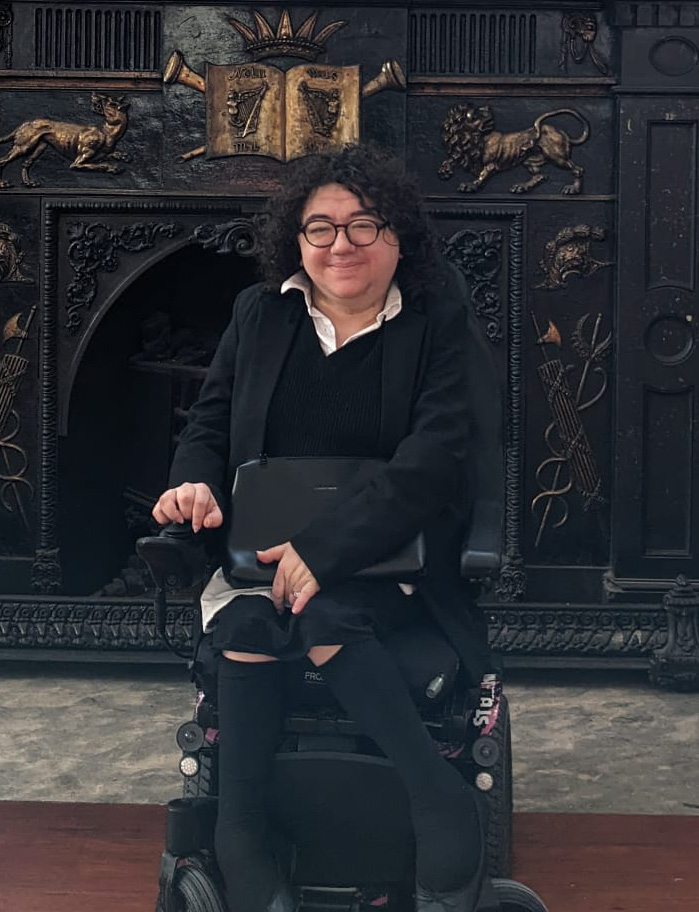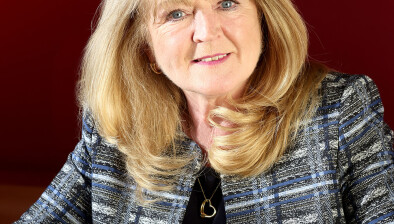Opinion: What does Article 42B mean for disabled people?

Alannah Murray
Law student Alannah Murray offers a critical perspective on the upcoming referendum on ‘care’.
“The State recognises that the provision of care, by members of a family to one another by reason of the bonds that exist among them, gives to Society a support without which the common good cannot be achieved and shall strive to support such provision.”
As a disabled person, my life has been the subject of conversations about care since I became a wheelchair user. It has always been at the forefront of my mind. What will happen to me if I ever lose independence? I consider it a privilege to be able to use my voice as a vehicle for my community.
I study law so people who look like me believe that they can not only succeed but excel — that they will be able to realise their ambitions. Yet, the conversation around ‘care’ is always about disabled people, never in collaboration with them.
Disabled people constantly fear being at the mercy of care. Cast your minds back to the case of ‘Grace’, a woman who has faced decades of abuse with little to no justice. I remember reading the interim report in 2021, all 639 pages, and wondering how this could happen. A price of €6.3 million was given for the years of physical and psychological abuse she suffered.
Abuse in State care is nothing new for disabled people, especially disabled women. In March 2023, the disability Oireachtas committee heard that “Domestic, sexual and gender-based violence (DSGBV) is more prevalent among women with disabilities and that abuse is often perpetrated by family members and carers”. Disabled people are still waiting for the publishing of the Brandon Report into institutional abuse.
Did you know that 1,228 disabled people are living in nursing homes, with 15 per cent of them under 50? Does that constitute ‘care’, or merely a modern take on the institutions of old?
The idea of enshrining ‘care’ in the Constitution could be considered a step in the right direction, for recognising the vital work of carers. With that said, the idea of codifying rights for one group sets a dangerous precedent for the disabled rights movement. The use of the word ‘care’ enshrines the right to be cared for, without a robust system in place for those disabled people who do not want care; what we want is rights.
We were given a piecemeal solution with the ratification of the United Nations Convention on the Rights of Persons with Disabilities (UNCRPD). It was ratified without the optional protocol that would allow disabled people to challenge any alleged abuses against disabled people. This vital mechanism for holding the State accountable for the gulf in education, employment and general human rights remains unratified, depriving disabled people of a host of constitutional rights.
We have the worst employment rate of disabled people in Europe. Until 2021, disabled people who received scholarships to continue their education had their social welfare cancelled. Disabled people are twice as likely to live in poverty. The gap between the poverty threshold (€291.50) and Disability Allowance (€232 as of 2024) is clear evidence that the State is not providing adequate resources to disabled people.
The disregard on a wage of €165 is a good thing, but why should disabled people be forced to work so they are not in poverty? Not everyone who is disabled is able to work, and disabled people should not have to push their bodies to the brink simply to avoid poverty.
Just last year, a case before the Workplace Relations Commission on potential abuse in relation to disabled people was deemed ‘not in the public interest’ enough to be heard in public. According to the last census, a fifth of Ireland’s population is disabled. Why are we not afforded justice in the same way as our non-disabled peers?
Inserting ‘care’ into the Constitution without first examining what it means is going to cause a major fallout for disabled people and their families. There was no definition of ‘care’ announced for the new wording, leading to increased and — in my opinion — unnecessary ambiguity.
The wording will mean that instead of the referendum being dubbed the women’s place referendum, it will forever be known as the care referendum. This will lead to a lot of conversations about disabled people, and I can almost guarantee that these conversations will be held without disabled people in the room.
I welcome the removal of wording that has long been outdated and sexist. Changing the wording, however, will not make a meaningful difference to the view of women. It does have the opportunity to fundamentally set the conversation about disabled rights and justice for disabled people back a considerable amount.
Reducing a monumental referendum such as this to simply ‘care’ is an insult to not only the families who have caring responsibilities that will be affected by the wording but additionally disabled people who are waiting for meaningful change around the conversations people have about disability.
The work of stay-at-home parents was recently estimated at €55,000 a year. Unless the State intends on remunerating carers and disabled people to that effect, I really do not see the benefit of using general umbrella of ‘care’ as a catch-all in the place of service provision, a robust and equitable social welfare system and a ratification of the UNCRPD Optional Protocol.
- Alannah Murray is a law student at the Honorable Society of King’s Inns and hopes to become a barrister specialising in disability law.









